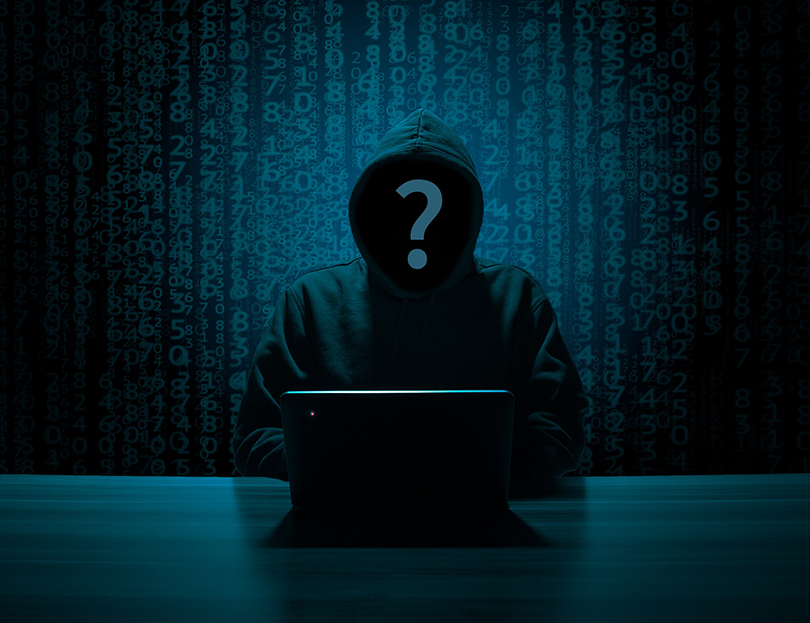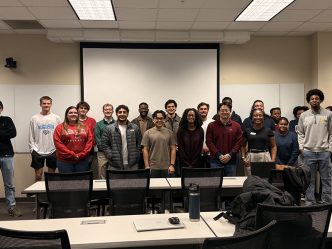As a trade war between the U.S. and China looms, Dr. Jonathan Leightner, an expert in Chinese economy, says most people are missing the bigger issue.
“Trade war is a spillover argument,” said Leightner, a professor of economics at the James M. Hull College of Business at Augusta University. “Trade war could hurt us, but what could hurt us even more is if China gets quantum communications before us.”
Though the two topics might seem worlds apart, according to Leightner, the trade war started with China rejecting a U.S. request that the country stop subsidizing its high-tech industry.
“[Chinese President] Xi Jinping wants China to be the world leader in artificial intelligence, robotics, etc,” he said. “President Trump is concerned with China subsidizing high tech and becoming a threat to us.”
China under Xi Jinping has poured a lot of resources into developing quantum communications. With this technology, Leightner says, China has the same military advantage the U.S. had with the atomic bomb at the beginning of the Cold War. The country can become a threat to the U.S. because quantum communications is in theory impossible to hack.
Hacker-proof
Imagine that A and B want to communicate in secret. In order to make it happen, they go into a sound-proof room that has only one door.
The only two ways for an eavesdropper to learn about their conversation is to either open the door and listen to them or clone both A and B (and all their knowledge) and reproduce their conversation in a different controlled environment.
If an eavesdropper opens the door, however, both A and B will know somebody is observing them and will stop talking. Cloning A and B and copying everything they know in order to reproduce their conversation elsewhere is also impossible.
In a situation like this, an eavesdropper will never know what A and B are talking about.
That is what happens with quantum communications, also known as quantum encryption.
Dr. Jeffrey Morris, an expert in quantum computing and encryption at Augusta University’s Cyber Institute and the School of Computer and Cyber Sciences, said this technology is hacker-proof because of two quantum principles: the Heisenberg Uncertainty Principle, which states that observation of quantum particles changes their behavior, and the no-cloning theorem, which states that no quantum state can be cloned.
This technology in the hands of a foreign adversary is worrisome, Morris said. What is more concerning is that China has sent into space the first quantum-communications satellite and hosted the world’s first intercontinental hack-proof video call in 2016.
China has also built a quantum communications channel between Beijing and Shanghai that stretches over 1,200 miles. This was the first effort by a nation-state to build a quantum structure of this magnitude for regular use, Morris said.
Meanwhile, Morris said although the U.S. has developed this technology, it has not yet put it to use like China has.
China’s end game
A hacker-proof technology would enable China to hack into U.S. computer systems without fear of retaliation, Leightner said. If that happens, China could learn about U.S. military plans, but the U.S. would not have access to China’s plans.
Having a secure communications system would also allow China to exploit U.S. computer networks without being detected, said Dr. Jay Heslen, an assistant professor in the Master of Arts in Intelligence and Security Studies.
That is why China has been working on its cyber capabilities since the early 1990s.
“It was the First Gulf War in 1991 that initially inspired the Chinese to invest in information technology as they believed without it, they would fall chronically behind the U.S. in their ability to wage war and develop an advanced economy,” Heslen said.
He said the use of cyber capabilities to disrupt the U.S. military advantage matches China’s “long-standing tradition of using stealth, deception and indirect approaches to warfare.”
U.S. response
Starting a trade war with China is the wrong way to deal with the threat of the country acquiring hacker-proof technology, Leightner said.
“We cannot win a trade war against China,” Leightner said. “They have weapons against us that would devastate us.”
China has more than $3 trillion in foreign reserves, two thirds of which is in U.S. dollar holdings in either cash or government bonds. If China suddenly drops those holdings into the market, the value of the dollar will go down and the interest rate in the U.S. will go up significantly. The result would be catastrophic to the U.S. economy, Leightner said.
“This U.S. versus China or us versus them is to the detriment of mankind,” Leightner said. “In an ideal world, we would share innovation for the good of mankind. But that’s not the real world. It’s not the U.S. or China.”
Leightner says the best response to China’s investment in its high tech industry is for the U.S. government to subsidize the development of its own quantum communications system.
“The real issue is high tech,” Leightner said. “We have to beat them to the punch.”
 Augusta University
Augusta University




